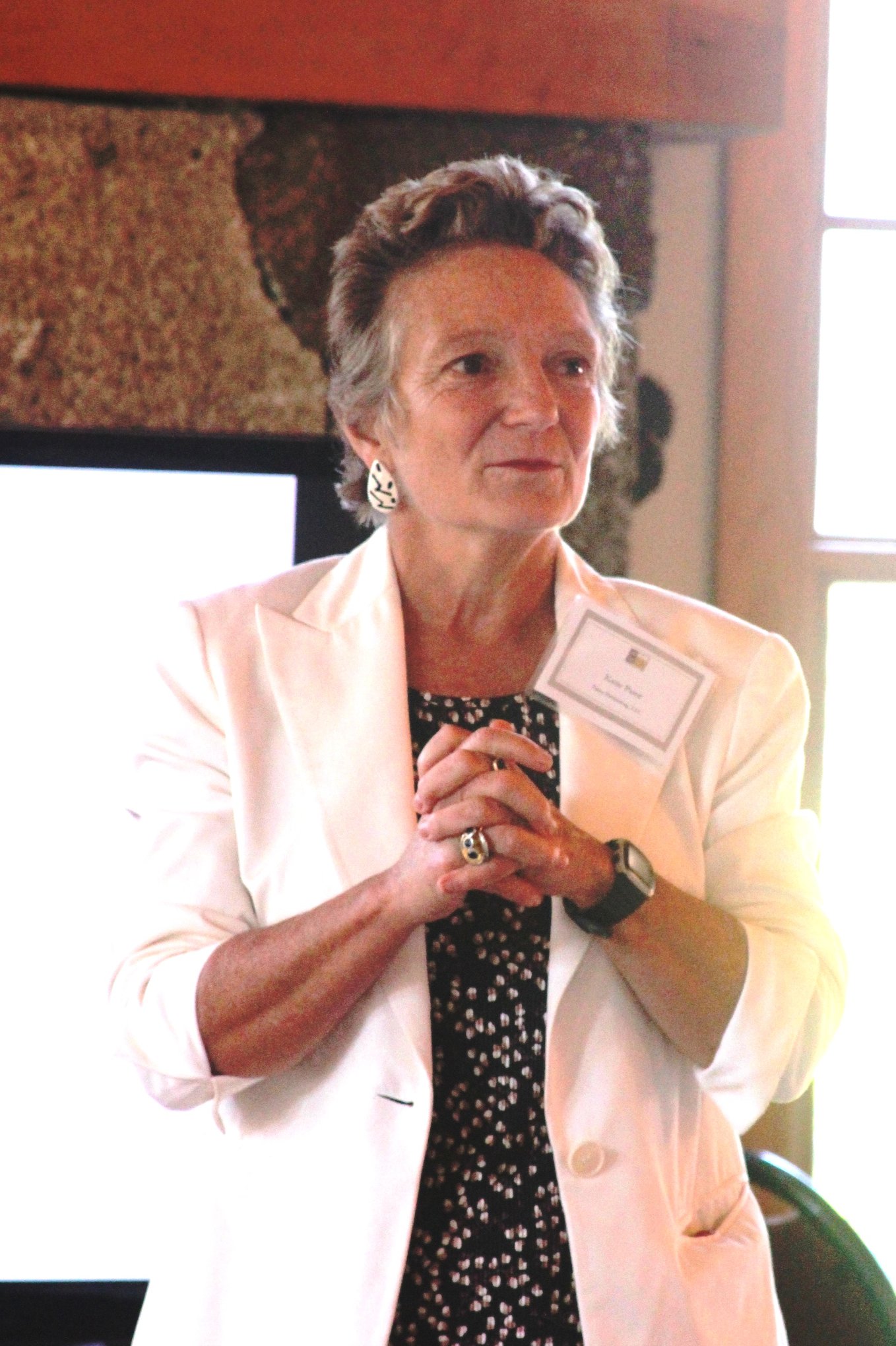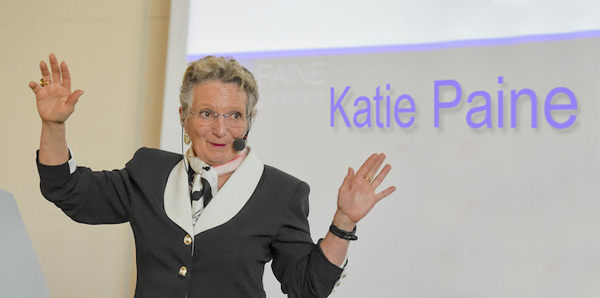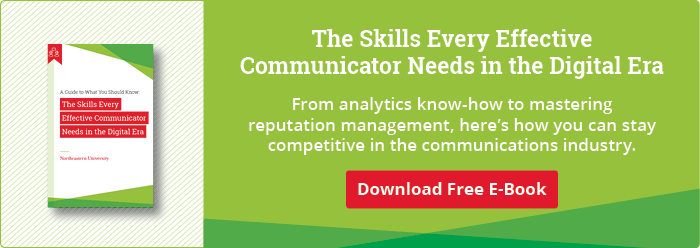Editor’s note: This post originally appeared on the Communications Alumni Network Blog. Carl Zangerl, faculty director for Northeastern’s graduate communication programs, discusses his recent interview with Katie Delahaye Paine, who has been a pioneer in the field of communication and PR measurement for three decades.
Students in Northeastern’s MS in Corporate and Organizational Communication program consider Paine’s book, Measure What Matters, an excellent and practical introduction to assessment methodology.

Here’s what Katie had to say about measurement, why it matters for communicators in all functional areas, and why the ability to demonstrate communication impact is a key to career advancement in our digital era.
CZ: Some communicators used to say that communication was too qualitative to be measured. Digital media has changed all that!
KP: It sure has. Through tagging and Google Analytics, we can now follow a PR campaign’s digital trail and discover whether or not it had the desired impact—not just in terms of clicks, but in terms of goal conversions and even sale leads. Today, you have to make a strong case for allocating resources to a particular PR tactic, and to do that you have to be able to deliver measurable results.
CZ: Speaking of impact, what do you see as a major PR priority for organizations, especially as we deal with Covid-19?
KP: Leaders not only want to protect their organizational reputations, they believe it’s critical to increase trust in their brands. And this requires transparency, authenticity, and frequently a kind of advocacy for public causes. They understand that increasing trust also increases loyalty, which in turn contributes directly to the bottom line. I think it’s interesting too that PR is now seen not only as a lead generating, trust-building process but also as a way to attract talent.
CZ: PR as a talent acquisition tool? We used to think of brands as primarily outward-facing.
KP: Today, brand is everywhere. We’ve seen how employees have become advocates for their brands. Southwest Airlines, Patagonia, and PepsiCo are companies that realized this early on. They learned that their employees were the best brand ambassadors because they have credibility with a wide circle of family and friends. As a result, they can amplify a message in ways that a traditional PR campaign simply can’t.
CZ: Let’s turn to skills—what competencies should early career PR professionals bring to the table?
KP: They need to understand psychology and human behavior, the factors that drive perceptions of both internal and external stakeholders. And they definitely need to feel comfortable with data, to learn how to make decisions on a smart interpretation of what the data mean. Here’s the reality: executives, CEOs, and leaders of marketing and communication like charts and graphs—that’s a “language” communicators need to speak.
CZ: Take a look at your future-of-PR crystal ball—what do we need to pay attention to?
KP: I have to admit, I was a big skeptic of how Artificial Intelligence (AI) could apply to PR and communication. But I recently saw a demo of an AI application that can identify the early warning signs of a crisis, the type of crisis it is (i.e. accident, natural disaster, human failure, self-inflicted etc.), and the most effective ways to respond. All in a matter of minutes! And while there are many different crisis scenarios, AI tells us that a response combining an apology with a commitment to provide more information is often the fastest route to holding harmless an organization’s reputation. AI is definitely something to keep an eye on.
 Katie Delahaye Paine was recently awarded the prestigious Institute of Public Relations Jack Felton Medal for Lifetime Achievement, an award made for lifetime contributions in the advancement of research, measurement, and evaluation in public relations and corporate communication. She has also been a leading promoter of standards in the PR and social media measurement field, most recently as the initial organizer of The Conclave that released social media measurement standards. Her newsletter, The Measurement Advisor, is a comprehensive source of information about best practices in communications measurement.
Katie Delahaye Paine was recently awarded the prestigious Institute of Public Relations Jack Felton Medal for Lifetime Achievement, an award made for lifetime contributions in the advancement of research, measurement, and evaluation in public relations and corporate communication. She has also been a leading promoter of standards in the PR and social media measurement field, most recently as the initial organizer of The Conclave that released social media measurement standards. Her newsletter, The Measurement Advisor, is a comprehensive source of information about best practices in communications measurement.
Learn more about the communication skills required to succeed in today’s business world by downloading our free guide below.







Related Articles
Faculty Insights: What Do Employers Look for in a New Candidate?
Virtual Co-op Evolves Into a Social Platform WomenVotes.org
Why You Should Consider a Career in Technical Writing